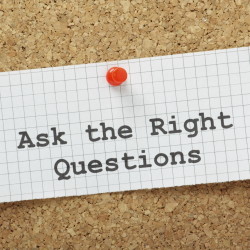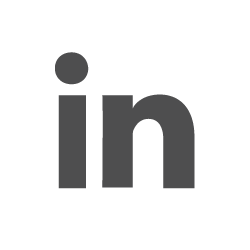How to Answer the “Any Questions?” Question
It’s a question that ends many interviews, and it’s one that stumps many interviewees.
“Do you have any questions for me?”
If anything, there’s one answer that’s rarely correct. “Nope, I’m good.” That response can signal that you’re uninterested in the position.
What should you be asking? There are a lot of options, but have a few written down so you can be ready for the “Any questions?” question. Here are some suggestions of what to ask and why:
1. What process do employees go through to get acquainted with this role? What ongoing training opportunities or continuing professional development opportunities do you offer?
There’s almost always a learning curve when starting a job, so this question can help you determine how the company will help you adjust to your new role. You’ll get insight into the company’s approach to onboarding new employees, and the training they do internally. Asking about ongoing training also helps you learn about a company’s approach to career development options.
2. What does an outstanding employee accomplish in this role? For people who are successful here, what qualities do they have or develop in this role?
These questions help you uncover expectations for the role, and for the company’s employees in general. If you can see yourself accomplishing these goals, even if they may be a bit of a stretch right now, the role could be a good fit. If these goals seem unattainable, or not like something that you would enjoy, the job might not be a great fit, or it might be time to ask some follow-up questions.
3. In 90 days / six months /one year, what will this position have accomplished?
Like question #2, this one helps you figure out expectations, and it adds in how quickly the employer wants those expectations met. This may also help you identify what kinds of projects and tasks will take priority as you’re starting out.
4. How is success measured?
More expectations! This question specifically is aimed at determining how your work will be evaluated. In some positions, your work will be measured based on hard data, perhaps in how many calls you can handle or hitting specific sales goals. In other positions, your output will be evaluated more on quality than quantity. If you have experience with those metrics, you can let the interviewer know so you can demonstrate how you have achieved success in the past.
5. How does this position fit into the company’s goals and success? Your department’s goals?
In researching the company’s background (you did research it, right?) you probably found out a bit about what matters to the company. The interviewer likely will provide relatively high-level answers, but you’ll be better able to determine how your work fits into the bigger picture of what the company is trying to accomplish.
6. What should I know about your style of managing? How do your employees best communicate with you? What do your employees say are the top three reasons they love working for you?
Most likely you will be interviewing with the person who will be your direct supervisor, so these questions will help you figure out how you can work with that person best. You may also see how your preferred methods of communicating will mesh with your manager’s personality and style.
7. How did this job become available? Why are you seeking to fill it now?
If you’re being hired for a previously existing role, this helps you get some historical perspective. Was the previous employee promoted? Did the individual move into a new role? Both may bode well for your ability to move within the company or pursue new opportunities. If it’s a new position, you can learn why the company is adding this position.
8. What is your history with the company? What do you love about working here? What are some of your challenges?
Turn the “tell me about yourself” question back on your interviewer. Did the individual work up through the ranks? Maybe he or she was drawn to the company for other reasons than what you’ve considered. You may learn some pros and cons of the job, or possibly spot how you can help with some of those current challenges.
9. How does the company develop teams? Who are the key players that I’ll be working with and how will I be expected to interact with them?
Most likely, you’ll be working in a team, rather than all on your own. How the company encourages teamwork can be a good cultural signal. Does the company sponsor team training events of outings? Do team members regularly eat lunch together? Do they interact a lot outside of work? Knowing who you will be working with in addition to your manager also can help you find out who may be giving input into your tasks.
10. Do you see any gaps in my skills or qualifications?
You may have been asked about what you see as your weaknesses, but does your potential manager see any gaps in your skills that could prevent you from getting the job? Asking this question gives you the chance to set the record straight about a quality that may not have been listed on your resume, or you can outline a plan for how you can become better at a skill.
Now that you have these questions, go forth and surprise your interviewer with your well-thought-out response to that final question. You’ll appear more prepared and engaged, and you might learn even more than you expected!

















